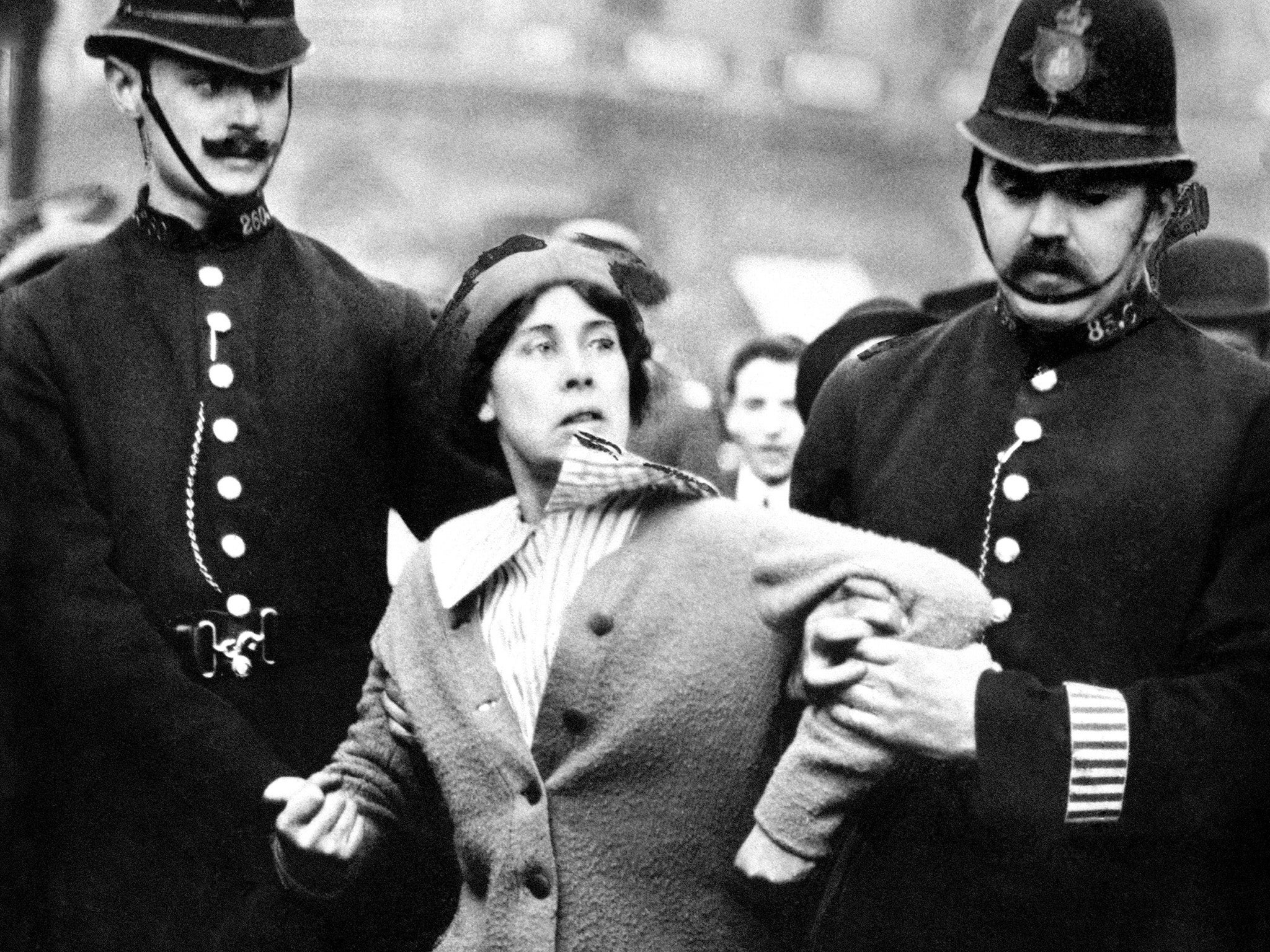Women's Suffrage at 100: Amber Rudd says she will consider a pardon for suffragettes convicted for protesting for right to vote
Campaigners calling on Government to overturn convictions on the centenary of the 1918 Representation of the People Act, which began to include women in the political system

Your support helps us to tell the story
From reproductive rights to climate change to Big Tech, The Independent is on the ground when the story is developing. Whether it's investigating the financials of Elon Musk's pro-Trump PAC or producing our latest documentary, 'The A Word', which shines a light on the American women fighting for reproductive rights, we know how important it is to parse out the facts from the messaging.
At such a critical moment in US history, we need reporters on the ground. Your donation allows us to keep sending journalists to speak to both sides of the story.
The Independent is trusted by Americans across the entire political spectrum. And unlike many other quality news outlets, we choose not to lock Americans out of our reporting and analysis with paywalls. We believe quality journalism should be available to everyone, paid for by those who can afford it.
Your support makes all the difference.Home Secretary Amber Rudd has said she will consider a pardon for suffragettes who were convicted for protesting for the right to vote.
Campaigners have called on the Government to overturn their convictions on the centenary of the 1918 Representation of the People Act, which began to include women in the political system.
“I will take a look at it,” Ms Rudd said, when asked about the measure on BBC Radio 4’s Today programme.
“I can completely understand where this campaign is coming from and why they want it to take place,” she said, before adding that the case was "not straightforward" because of the nature of some of the convictions.
She acknowledged there was “something different” about the case of the suffragettes but said she had to consider the “practical reality of breaking the law in this way”.
Ms Rudd was speaking before Theresa May was due to mark the centenary of the introduction of votes for women with a speech warning that abuse in public life has become so severe it is threatening democracy.
Among the campaigners who called for the pardon for the suffragettes was Scottish Conservative leader Ruth Davidson.
“Voting was a value judgment, not an intrinsic right. That inequality is one of the reasons why I support calls by family members to offer a posthumous pardon to those suffragettes charged with righting that wrong,” she said in an article in The Daily Telegraph.
Sam Smethers, chief executive of the Fawcett Society, which campaigns for gender equality, said: “Suffragette activism was for a noble cause and many of them became political prisoners. It would be a fitting tribute to pardon them now.
“They made such sacrifices so that we could all enjoy the rights we have today. In any meaningful sense of the word, they were not criminals.”
While suffragists used peaceful methods to achieve women’s suffrage, the suffragettes employed more militant tactics in their campaign.
There were more than 1,300 suffragette arrests according to the England, Suffragettes Arrested, 1906-1914 collection.
Many went on to be jailed, including leader Emmeline Pankhurst.
As a founder member of the Woman’s Social and Political Union (WSPU), Ms Pankhurst was sentenced to repeated prison sentences as a result of her activities.
The Prime Minister will celebrate the achievements of the suffragettes in a speech on Tuesday, but will say that political life is deteriorating and abuse is becoming more common.
“While there is much to celebrate, I worry that our public debate today is coarsening. That for some it is becoming harder to disagree, without also demeaning opposing viewpoints in the process," she is expected to say.
“In the face of what is a threat to our democracy, I believe that all of us individuals, governments, and media old and new – must accept our responsibility to help sustain a genuinely pluralist public debate for the future."
She will point out women, LGBT+ and BME politicians are disproportionately targeted for abuse online.
It emerged last September that Shadow Home Secretary Diane Abbott alone received almost half of all of the abusive tweets sent to female MPs in the run up to the general election.
Join our commenting forum
Join thought-provoking conversations, follow other Independent readers and see their replies
Comments